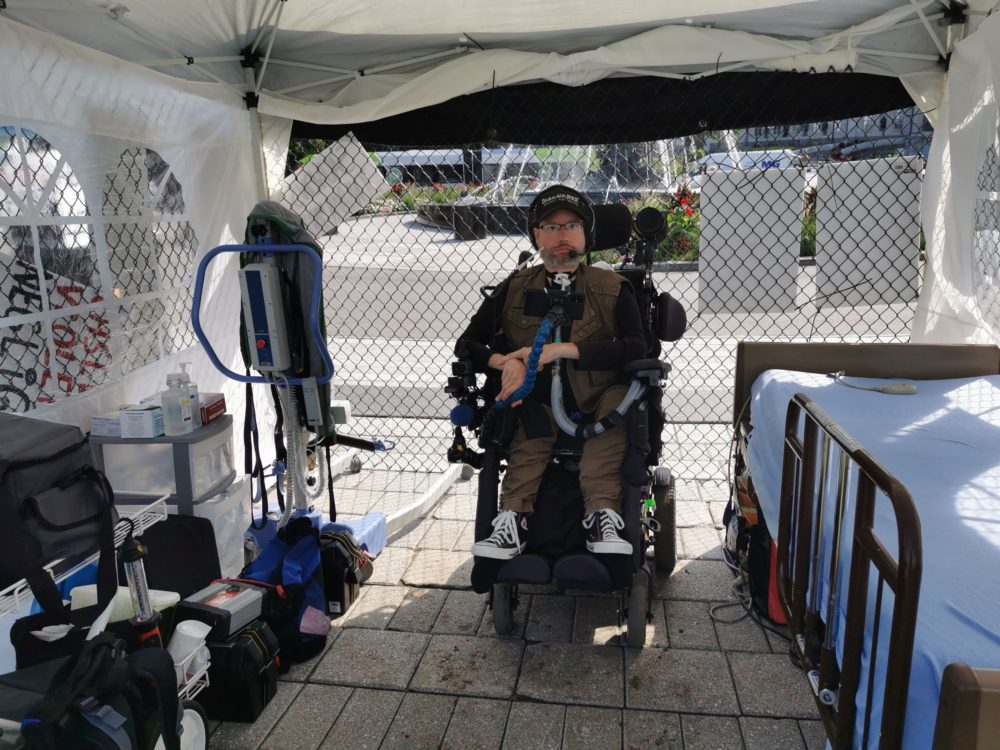By Neena Bhandari
Sydney, 23.08.2021 (Hireup): Australia’s National Disability Insurance Scheme (NDIS) is said to be a ‘game changer’ for people with disabilities and their families, but how does it hold up on the global stage? I spoke to three leading disability organisations in Canada, the United Kingdom and Singapore to find out what supports are available in their countries. Are they advocating for a universal, person-centred scheme which offers people with disabilities more ‘choice and control’ over the care and services they receive?
Every Canadian Counts Coalition (ECCC) board member Jonathan Marchand says: “[The] NDIS is an example to follow. In Canada, there is no centralised funding for services and support for people with disabilities. It is left to the provinces and there’s a patchwork of support that, for the most part, hasn’t been updated for decades now. In some places, you will even struggle to get funding for a wheelchair”.
“The majority of people with severe disabilities have to live in various institutional or semi-institutional settings because that’s where most of the funding goes. People with disabilities do not have the right to choose to live in the community and have control over their life, even though Canada helped craft the United Nations Convention on the Rights of Persons with Disabilities (CRPD).”ECCC has been campaigning to get the NDIS model adopted in Canada. “The federal government needs to step in and implement solutions so that people with disabilities are no longer segregated and treated as second-class citizens,” adds Marchand.
SINGAPORE: In Singapore, the Disabled People’s Association (DPA) is the only non-profit organisation for people with disabilities. Its executive director, Dr Marissa Lee Medjeral-Mills, says: “The main principles of the NDIS – that affirm persons of disabilities’ choice, autonomy and independence – are the gold standard, but implementation is another thing.
“The system here needs to look at how it can empower individuals with disabilities to take more control over what support they have access to. Disability services here are provided through charities with funding from the government. It’s based on the ethos that the community and family support each other, and the government only steps in with emergency assistance or support for those in a lower income bracket.”
Singapore has ratified the CRPD and implements it through the Enabling Masterplans.
“The previous Enabling Masterplan moved towards offering some support that is not ‘means tested’ in the form of funding offered to those whose household income is below a specified threshold. For example, the Open Door Programme is a comprehensive support package that aims to match potential employees with disabilities with employers,” Dr Lee Medjeral-Mills says.
“It’s a huge step here in terms of government support for people with disabilities because Singapore does not consider itself as a country that can support universal social service. Despite this progress, there is some way to go for Singapore to be an inclusive society.”
The DPA supports the idea of an NDIS being explored in consultation with all stakeholders. “The emphasis should be on consultation with individual persons with disabilities because the community here are used to direction from the top down, and it’s time we heard more disabled voices leading change in the disability landscape,” Dr Lee Medjeral-Mills says.
UNITED KINGDOM: In the UK, Think Local Act Personal (TLAP) is a partnership of 50 health and social care organisations. Its head Ian McCreath says: “[The] NDIS espouses choice and control in the manner envisaged by policy in England – it’s certainly something we can look to and learn from. However, it has limitations, most crucially the age eligibility limits [The NDIS only supports people under the age of 65 years]. Our ambition for social care reform covers all ages so [an] NDIS for us would only be a partial solution.
“We could definitely learn from the way that grassroots public support was built up with the Every Australian Counts campaign. This meant a hypothecated tax became an acceptable way of funding the NDIS and people supported its introduction. We need more focus in the UK about the necessity to bring the wider public with us when it comes to reforming and funding social care.”
Policy in the UK does emphasise choice and control, McCreath says. “But there is a significant rhetoric gap between what policy intends and what many people actually experience,” he adds. “Reasons for this are many and complex. Certainly, underfunding plays its part, but also attitudes and processes have in places been slow to adapt and catch up with the policy shift. The government has long-promised social care reform proposals, which so far it has failed to announce.”
“Here much depends on where you live and how the local services are commissioned, which means people have very variable experiences; some have to self-fund or have extremely limited support as eligibility criteria become tightened.”
© Copyright Neena Bhandari. All rights reserved. Republication, copying or using information from neenabhandari.com content is expressly prohibited without the permission of the writer and the media outlet syndicating or publishing the article.



